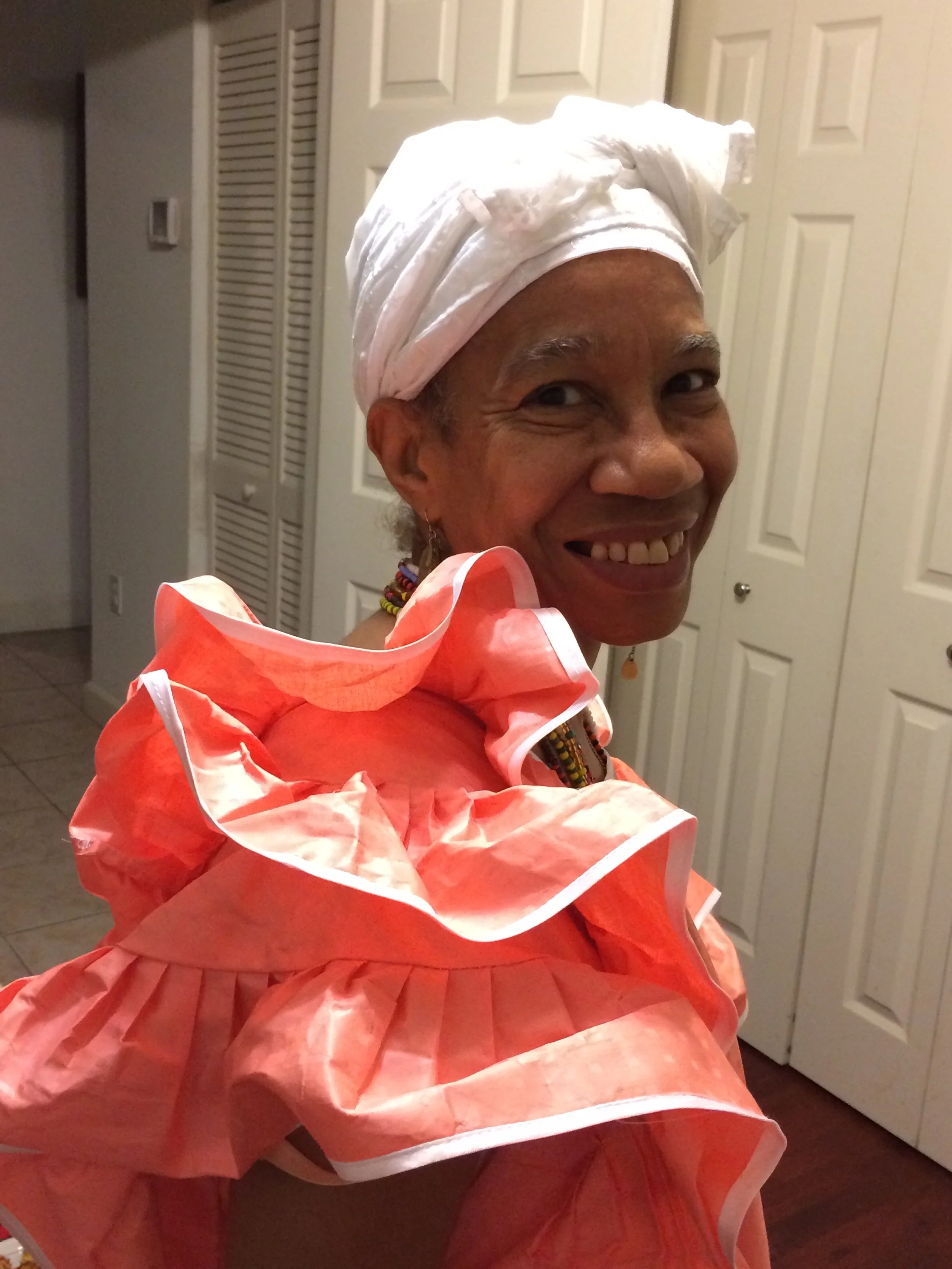Join us at the CCCADI Firehouse for an evening honoring the sacred Orisha drumming traditions.
CCCADI welcomes Félix Sanabria & Susan Richardson Sanabria, authors of “Ilú Añá: Sacred Batá, Handbook for Orisha Practitioners”, a work that presents historical, practical, and esoteric information and protocol on the Aña and Batá drum traditions in the Afro-Diaspora.
The event will feature a conversation with the authors, followed by a batá drum presentation by Félix -himself a prolific percussionist, scholar and educator- joined by special invited guest drummers.
About félix & susan
Félix Sanabria, Awó Orúnmila Ifámolá, Omó Odun Oshébile, Oló Obatalá Igbínlayé is a babalawo and percussionist. For well over forty years, he has performed and recorded with many renown Afro-Caribbean, Latin, Afro-Pop, and Jazz musicians, as well as in several films and television programs Babá Félix is also the musical director of the Afro-Caribbean ensemble Los Afortunados, and over the years has conducted lectures and demonstrations for public schools, colleges, universities, and cultural organizations. In addition, he has received various grants from several prestigious institutions to study and teach Afro-Caribbean music and drumming, and mentoring students attending New York colleges.
In June of 1992 he was initiated as a priest of Obatalá in Brooklyn, N.Y., by Oló Oshún Evelyn Smart, Okántomi, and Oní Shangó James Hawthorne Bey (Chief Bey), Ayá lIú. Ad-ditionally, Bab Félix is also initiated in the Lukumí Aña tra-dition. For years, he has performed Orisha music with many of the most prominent drummers of our time. Most notably the late Oní Shangó Orlando "Puntilla" Ríos, Obátilemí, a leading exponent of Añá drumming and Orisha and Afro Cuban music in the United States for close to thirty years. Puntilla introduced Babá Félix to his Ifá godfather, Gerardo "Taboada" Fernández, Ogbeyonú who eventually initiated him into the Ifá priesthood in March of 2001. In 2003, Babá Félix received his own set of batá drums, Añá Adé, the Crown of Aña, born in Havana, from Añá'bí Olorún, the Añá of Oluwo Fran Marquetti, Irosun'sa, whose drums descended from Jesús Pérez, Obá Ilú and his mentor, the revered Lukumí batá drummer Pablo Roche, Okilakpá. Undoubtedly, these men were the most influential olúbatás of the 20th century. Since its first performance in New York in 2004, Añá Adé has presided over many Orisha ceremonies in New York and other areas of the country. Currently, Babá Félix resides in Miami, Florida and Añá Adé continues to serve New York, Miami, and other communities.
Susan Richardson-Sanabria, Adéyolá, is an Olorisha of Oshún, initiated in 1993 in the Bronx, New York. She is also Apetebí Añá and Apetebi Orúnmila. Before embracing Lukumí Orisha spirituality, Adéyolá earned a Master of Fine Arts degree at the University of Michigan, where she was recognized with an Esther Pease Award for Excellence in Dance. Over the years, Adéyolá has performed with Afro-Caribbean, Haitian, jazz, and modern dance ensembles. Adéyolá is an educator who has taught dance in an array of educational venues including colleges and universities, public schools, and community centers. She has trained children and adults, coached teaching artists, developed curricula, and organized and managed arts programs. Her biography of James Hawthorne Bey (Chief Bey) was published by the Oxford University Press as part of the African American National
American Studies Center. She has supported Babá Félix on his religious journey, encouraging his growth as a musician and priest, and diligently worked alongside him in the production of this book, which narrates "theirstory" and life experience, and the lessons that accompanied the journey through the many realms they traveled together.
About The Book
In our mission to preserve the legacy bequeathed us by our African ancestors and develop the status, validity, and value of literature on Lukumí Orisha Religion, Eleda.org Publications is proud to play a role in this ground breaking endeavor. This publication will undoubtedly become a priceless tool for the generations of the future who seek a greater understanding, not only of this faith, but also of the trajectory of its American pioneers who experienced the difficulties associated with the transplantation of this spirituality from Cuba, a small Caribbean island, to other areas of the Caribbean, the Americas, Europe, and beyond. This is a history that was long overdue.




